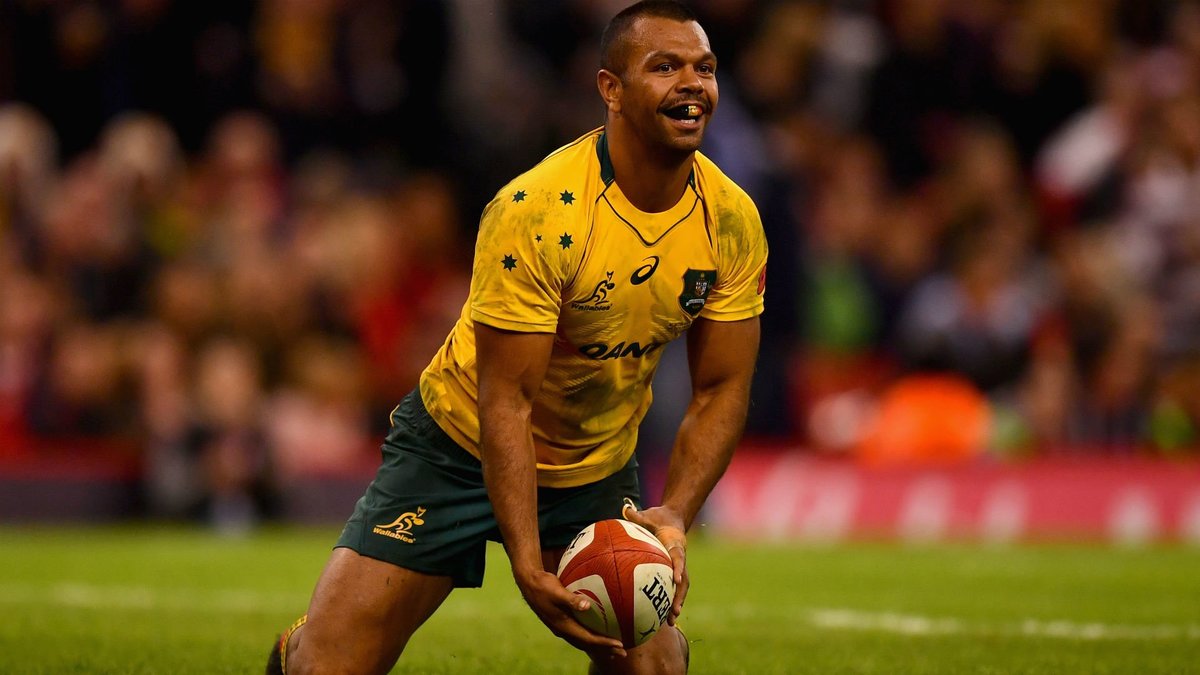Quade Cooper's shock Wallabies withdrawal sees Kurtley Beale recalled

Kurtley Beale and Noah Lolesio will be parachuted into the Wallabies squad for the upcoming Spring Tour, but the international future of Quade Cooper is in doubt after the star flyhalf opted to return to his Japanese club.
Cooper has joined Samu Kerevi and Sean McMahon in withdrawing from the Wallabies’ squad in a move that has left Rugby Australia fuming.
Wallabies coach Dave Rennie had thrown all three players an international lifeline on the understanding they would be available for the upcoming Tests against Scotland, England and Wales.
Kerevi and McMahon announced their withdrawals earlier this week, while Rennie confirmed on Thursday that Cooper had also opted out.
Rugby Australia had relaxed its eligibility rules for this year to allow Rennie to select a number of the country’s overseas-based stars.
But this week’s backflip from Cooper, Kerevi and McMahon could have deep ramifications going forward.
Cooper’s Wallabies return sparked a five-match winning run, but the 33-year-old’s hopes of appearing for Australia at the 2023 World Cup are now in the balance following his shock decision to choose club over country.
“He’s torn,” Rennie said. “He wants to be here, he wants to be a Wallaby, but he feels loyalty to his club. In the end, he’s made a decision that he feels is the right one.
“We want guys who are desperate to be Wallabies. I know Quade says he is, but he’s torn. If he had the blessing of the club he would come.”
Rennie was non-committal when asked whether Cooper, Kerevi and McMahon’s chances of future selection had been affected by their withdrawals.
“I guess that’s a bit of crystal ball going on there,” he said.
It’s understood after meetings that dragged late into Monday night… #Wallabieshttps://t.co/FCAjeqCveP
— RugbyPass (@RugbyPass) October 26, 2021
When pressed about whether he thought the relationship with the three players could be salvageable and positive going forward, it was what Rennie didn’t say that spoke volumes.
“Again it’s really going to depend on what our policies are going to be beyond this year for a start,” he replied.
“We’ve got some boys based in France who are going to play in this series as well, then we’ll look at what the future looks like. So it may be irrelevant based on whatever the plans are going forward.”
Beale hasn’t played a test since appearing for the Wallabies at the 2019 World Cup and will be rushed into the squad as cover for the No 15 jersey.
“We get a chance to look at Kurtley in our group and get an understanding of how he will fit in from a cultural and rugby perspective,” Rennie said.
Fit-again flyhalf James O’Connor will be entrusted to lead the side from No 10, with Lolesio drafted in after being a shock exclusion from the initial Spring Tour squad.
Star back Reece Hodge is set to miss the Spring Tour with a pectoral injury.
– Justin Chadwick










































































